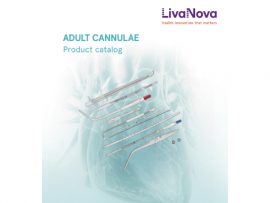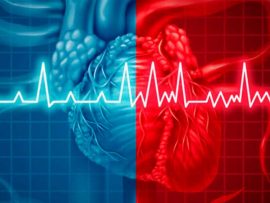Abstract Background: Patients who undergo extracorporeal cardiopulmonary resuscitation (ECPR) are at risk of left ventricular distention and complications. There is emerging evidence that concurrent mechanical left ventricular (LV) unloading (e.g...
Read MoreAbstract Focused cardiac ultrasound is an important aspect of the comprehensive management of patients with cardiac arrest, especially in patients selected for extracorporeal cardiopulmonary resuscitation (eCPR). It guides physician during..
Read MoreAbstract The survival rate after cardiac arrest (CA) remains low. The utilization of extracorporeal life support is proposed to improve management. However, this resource-intensive tool is associated with complications and..
Read MoreAbstract Extracorporeal cardiopulmonary resuscitation (eCPR) can improve survival in selected patients with cardiac arrest (CA). In this meta-analysis, we evaluated factors associated with short-term survival and favorable neurologic outcome (FNO)..
Read MoreSurvival and Factors Associated with Survival with Extracorporeal Life Support During Cardiac Arrest
Abstract The survival rate after cardiac arrest (CA) remains low. The utilization of extracorporeal life support is proposed to improve management. However, this resource-intensive tool is associated with complications and..
Read MoreAbstract Severely hypothermic patients, especially suffering cardiac arrest, require highly specialized treatment. The most common problems affecting the recognition and treatment seem to be awareness, logistics, and proper planning. In..
Read MoreAbstract Objective: To study the correlation between the mean arterial pressure (MAP) level in the first 6 hours of extracorporeal cardiopulmonary resuscitation (ECPR) and patients’ neurological outcomes. Methods: Sex, age, basic..
Read MoreAbstract Cardiac arrest is the most serious event among the complications associated with spinal anesthesia. Spinal anesthesia reduces the release of catecholamines and impairs neuroendocrine response following cardiac arrest, which..
Read MoreAbstract Cardiac arrest in patients on mechanical support is a new phenomenon brought about by the increased use of this therapy in patients with end-stage heart failure. This American Heart..
Read MoreAbstract OBJECTIVES No guidelines for mechanical circulatory support in patients with therapy-refractory cardiogenic shock and multiorgan failure including ongoing cardiopulmonary resuscitation (CPR) exist. To achieve immediate cardiopulmonary stabilization, we established..
Read MoreAbstract Objectives: Recent analyses show higher mortality at low-volume centers providing extracorporeal membrane oxygenation. We sought to identify factors associated with center volume and mortality to explain survival differences and..
Read MoreThis 2020 International Consensus on Cardiopulmonary Resuscitation (CPR) and Emergency Cardiovascular Care Science With Treatment Recommendations on basic life support summarizes evidence evaluations performed for 20 topics that were prioritized..
Read More








